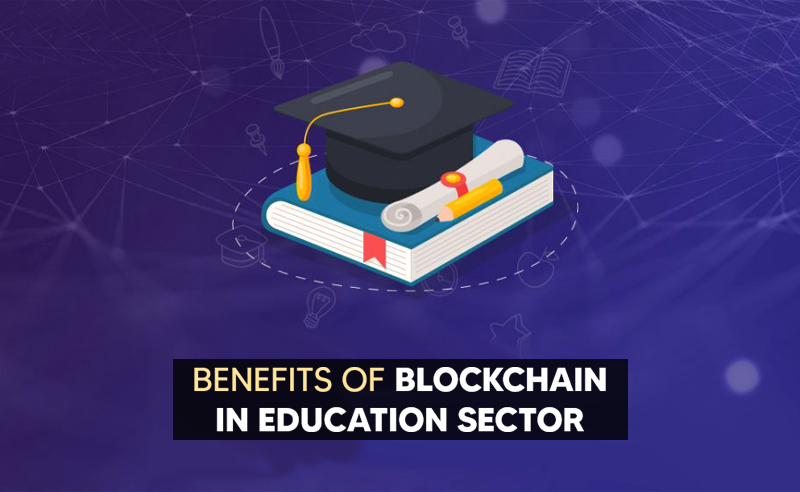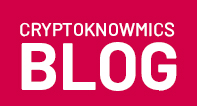Table of Contents
The University of Melbourne, initiated deploying Blockchain for the purpose of issuing digital credentials which facilitates students to share their verified copies of qualification certificates with employers and other third parties in a tamper-proof system. The education sector is pacing up beyond smart boards and remote learning. In this gradually developing technological era, Blockchain technology can add to the new paradigm to the education system. Even some of the universities and higher education institutions have already started fueling their system with Blockchain to maintain student records, innovative learning techniques, and many more. There is a higher probability that Blockchain will become an impeccable part of the education system in the coming years. In this article, let us understand more about the scope of Blockchain in the education sector and try to explore the benefits of Blockchain in education.
Benefits of Blockchain In Education Sector
Blockchain technology is one of the recent technologies with the promising model of decentralization, where the data or information or any transaction taking place between the two parties don’t need any intermediary. As all the transactions are being recorded on a distributed ledger on the basis of consensus mechanism, the connected network of Blockchain is considered as transparent with easy traceability of records. The security of data is maintained by various encryption techniques on the network. Presently, the education sector is experiencing one or the other challenge which can be eased out by deploying the education blockchain projects.

Record Keeping
Blockchain can transform the system of “record-keeping” in the education sector making the trouble-free accessibility of data by admin, students, employers, and many more (depending on the permission). Degrees, certificates, diplomas, researches, and many other documents if maintained on Blockchain can help the departments to trace the progress of students, employers to directly access the documents, and also the issues related to intellectual property registration can also be resolved. For instance, Sony Global Education has designed the platform for the educational sector while collaborating with IBM, to securely share the records of students as and when needed.
Virtual Transcript
Creation of verifiable virtual transcript or keeping the records of all educational achievements on a Blockchain network can diminish the frauds related to CV, smoothen the transfer of students from one university to another, turn down the costs related to verification of credentials, thus making the education system efficient. Manual verification of records can easily be replaced by a Blockchain network ensuring the more transparency and security of the network. For instance, a company called Learning Machine launched Blockcerts tools after partnering with MIT Media Lab to provide open infrastructure to develop, issue, view, and verify Blockchain-based certificates.
Execute Agreements
Distributed ledger technology can benefit the educational system by automatically executing the agreements only when mentioned conditions are satisfied through the smart contracts. For instance, Woolf University utilizes the Distributed ledger technology to operate smart contracts, where a series of “check-ins” of students and teachers validates the attendance and completion of assignments. DLT based smart contracts can also be used for distributed learning schemes where an institution can directly fund the account of any student either its is scholarship or any award money depending on the conditions of smart contracts.
Processing Payments
Either it is a procession of student fees or their scholarship, transferring the payments is a labor-intensive process. Blockchain-based cryptocurrencies can make this process of transferring the funds streamlined, following the decentralization network with negligible transaction fees and time. For instance, King’s College, New York started accepting the payments in Bitcoin which eliminates the transaction fees linked to credit cards paid by students.
Partnership Platform
Along with maintaining the transparent record platform for the purpose of better communication and transfer of documents, Blockchain can also be in service to enhance the learning experience of the students. Personal guidance from the best of the professors, sharing of the most effective notes for learning, communicating about the upcoming research, and other practices to strengthen the relationship among the community members of the education system can be possible with the utilization of Blockchain technology.
Digital Rights Protection
In academic space, one of the recent issues of plagiarism has been noticed which is leading to the problem of digital rights. Blockchain for universities can expand its utility for controlling the disposal of copyrighted material across the Internet. As the data maintained on the Blockchain network is available to all but non-immutable without any permission. It can resolve the problems related to leakage of confidential information, design, and documents related to potentially patented products and many more.
Innovative Platform of Learning
Learning the new concept or theory can sometimes be boring if taught in a monotonous way, thereby students either miss out or misinterpreted the concept. But the Blockchain can develop the platform for effective learning by allowing the accessibility of interesting study materials, downloading the relevant books, and sharing the tips of best educators either from an institute or paid content creators. Blockchain in higher education can provide the best interactive network to ensure the overall development of the students. For instance, the Education Ecosystem platform uses the Blockchain network to interact with academicians, students, and content makers for a better learning process.
Summing Up
Thus, it can be concluded that Blockchain can revolutionize the education system in multiple ways. From storing information in a secure way to share with multiple members in a transparent network, a Blockchain network can be utilized in a number of operations. With the help of distributed ledger technology, the academic sector could turn to a faster and safer network. As the era of digitalization is gradually expanding with a number of breakthrough technologies, they must be applied wisely in the industries, government agencies, and many other institutions to take advantage of the best of those technologies. Benefits of Blockchain in education are still on the exploring stage, however, endless opportunities are available which can revamp the sector completely. So, let us just hope that besides the smart boards and digital screens, Blockchain could prove as all-new experience to the community.

